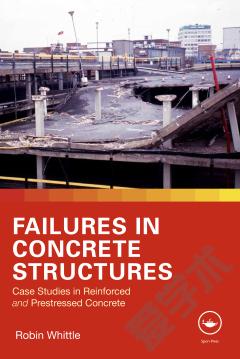Non-Destructive Evaluation of Reinforced Concrete Structures —— Non-Destructive Testing Methods
----- 钢筋混凝土结构的非破坏性评价:非破坏性测试方法
Engineers have a range of sophisticated techniques at their disposal to evaluate the condition of reinforced concrete structures and non-destructive evaluation plays a key part in assessing and prioritising where money should be spent on repair or replacement of structurally deficient reinforced concrete structures. Non-destructive evaluation of reinforced concrete structures, Volume 2: Non-destructive testing methods reviews the latest non-destructive testing techniques for reinforced concrete structures and how they are used.Part one discusses planning and implementing non-destructive testing of reinforced concrete structures with chapters on non-destructive testing methods for building diagnosis, development of automated NDE systems, structural health monitoring systems and data fusion. Part two reviews individual non-destructive testing techniques including wireless monitoring, electromagnetic and acoustic-elastic waves, laser-induced breakdown spectroscopy, acoustic emission evaluation, magnetic flux leakage, electrical resistivity, capacimetry, measuring the corrosion rate (polarization resistance) and the corrosion potential of reinforced concrete structures, ground penetrating radar, radar tomography, active thermography, nuclear magnetic resonance imaging, stress wave propagation, impact-echo, surface and guided wave techniques and ultrasonics. Part three covers case studies including inspection of concrete retaining walls using ground penetrating radar, acoustic emission and impact echo techniques and using ground penetrating radar to assess an eight-span post-tensioned viaduct.With its distinguished editor and international team of contributors, Non-destructive evaluation of reinforced concrete structures, Volume 2: Non-destructive testing methods is a standard reference for civil and structural engineers as well as those concerned with making decisions regarding the safety of reinforced concrete structures.Reviews the latest non-destructive testing (NDT) techniques and how they are used in practiceExplores the process of planning a non-destructive program features strategies for the application of NDT testingA specific section outlines significant advances in individual NDT techniques and features wireless monitoring and electromagnetic and acoustic-elastic wave technology
{{comment.content}}








 京公网安备 11010802027623号
京公网安备 11010802027623号